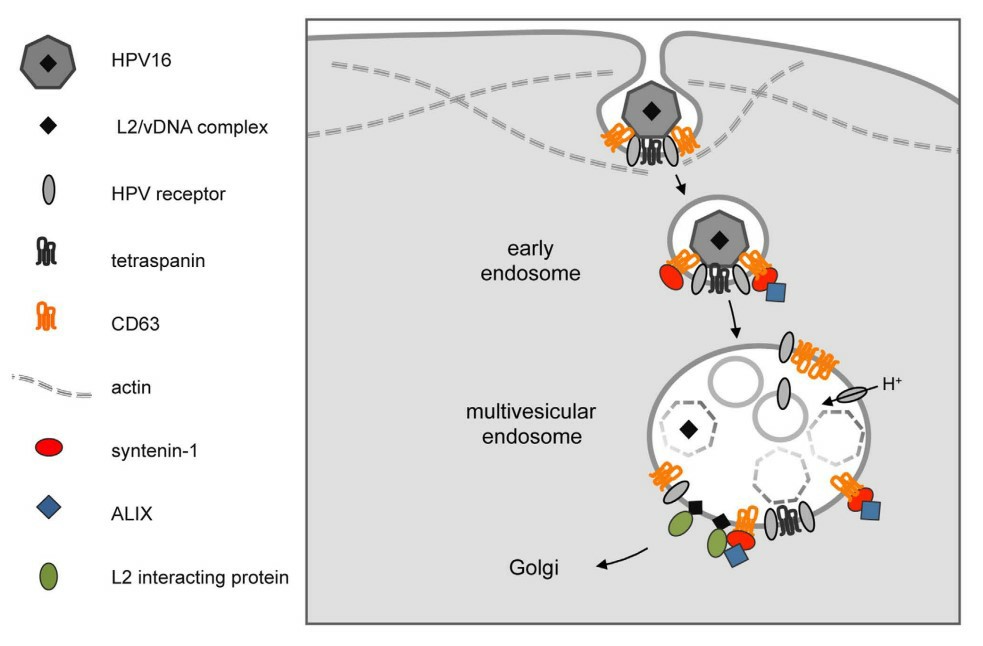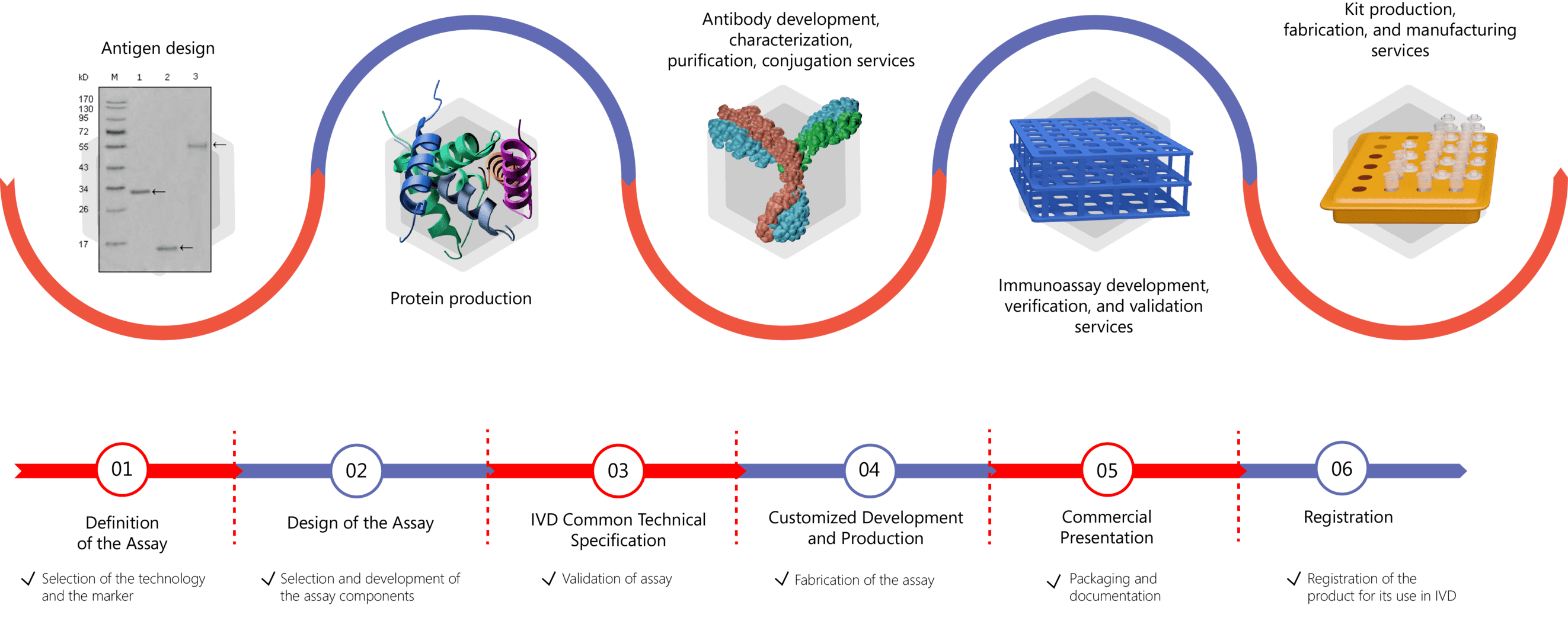Creative Biolabs has extensive experience in immunodiagnostic test development with expertise in antibody generation, recombinant protein expression, bioconjugate design and synthesis, and a wide range of immunodiagnostic strategies. Here, we specifically introduce our services to support the design and development of your in vitro diagnostic (IVD) antibodies and immunodiagnostic tests targeting various disease biomarkers, such as CD63.
Introduction to CD63
CD63 is a highly glycosylated protein encoded by the human CD63 gene and a member of the tetraspanin superfamily expressed on activated platelets, endothelium, osteoclasts, monocytes/macrophages, fibroblasts, and smooth muscle cells. The tetraspanin superfamily, characterized by the presence of four highly conserved transmembrane regions, participates in a series of cellular physiological processes, like cell activation, differentiation, adhesion, and tumor invasion. CD63 is the first characterized tetraspanin that was discovered as a protein on the cell surface of activated blood platelets (Pltgp40) and in the early stage of human melanoma cells (ME491). Being a member of tetraspanins, CD63 can interact directly or indirectly with many different proteins, including but not limited to integrins, other tetraspanins, cell surface receptors, kinases, and adaptor proteins.
 Fig.1 Model of CD63-syntenin-ALIX-dependent trafficking pathway of internalized HPV16.1.1
Fig.1 Model of CD63-syntenin-ALIX-dependent trafficking pathway of internalized HPV16.1.1
CD63 Marker for Cancer Diagnosis and Prognosis
CD63 has been investigated for its role in tumorigenesis and metastasis in several types of cancer, as well as its potential to be used as a marker for cancer diagnosis and prognosis. Miki et al. (2018) investigated the expression of CD63 in cancer cells and stromal cells from gastric cancer patients using immunohistochemistry and found that CD63 expression was mainly observed on the cell membranes of cancer cells, and in the cytoplasm of stromal cells. They demonstrated that CD63 might be a prognostic marker for patients with gastric cancer. Researchers found CD63 overexpression in esophageal cancer samples and negatively correlated with tumor stage and lymph node metastasis. Also, studies have suggested that CD63 had the greatest fold change (5.2-fold upgraded) in the follicular adenoma among DDB1, TYMP, VDAC2, and DCXR markers.
IVD Antibody & Immunoassay Development Services Provided by Creative Biolabs
Creative Biolabs has extensive experience in IVD antibody and immunodiagnostic test development. We offer customized target-specific services, including antibody generation, recombinant protein generation, custom conjugation, assay development, validation, and production. For more information please click the links below:
- IVD Antibody Development
- Antibody Pair Development
- Antibody& Protein Conjugation
- IVD Immunoassay & Kit Development

Please feel free to contact us for more information and discuss your project needs.
References
- Gräßel, Linda, et al. "The CD63-syntenin-1 complex controls post-endocytic trafficking of oncogenic human papillomaviruses." Scientific reports 6.1 (2016): 32337. Distributed under Open Access license CC BY 4.0, without modification.
- Miki, Y., (2018). “Clinico-pathological significance of exosome marker CD63 expression on cancer cells and stromal cells in gastric cancer.” PloS one, 13(9). Distributed under Open Access license CC BY 4.0, mentioned by summarizing some parts of the article.
For Research Use Only.